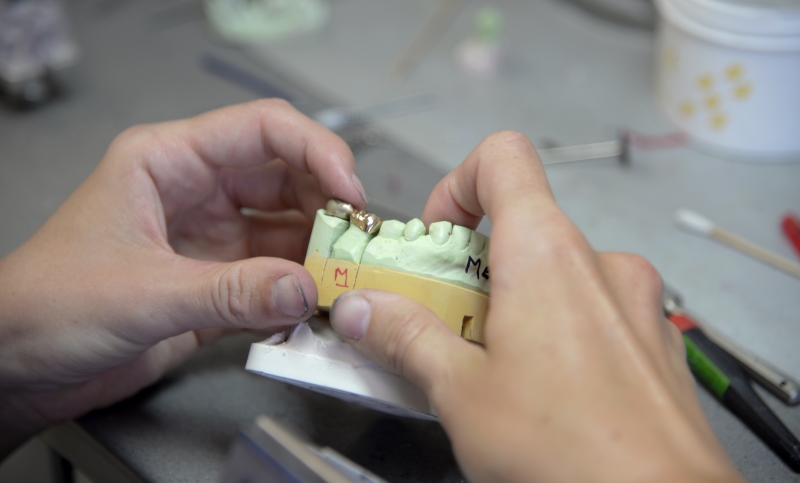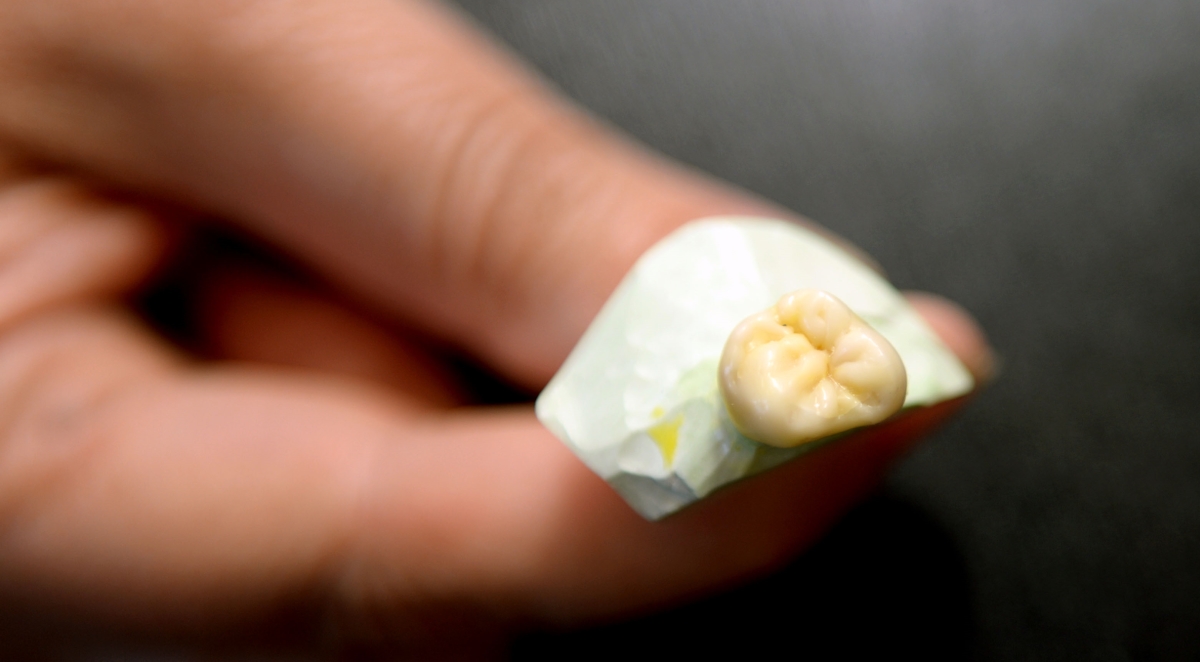In an age where mindful consumers are overwhelmed with a wide range of facts, figures and news, many patients are often curious about whether or not dental crowds are toxic, why they are needed and which crowns are best suited for them.
Are Dental Crowns Toxic?
While concerns of dental toxicity fears are understandable, information collected from professional organizations like the American Dental Association suggest that toxicity is not a concern for those receiving dental crowns.
In general, dentists understand the importance of trust and work very hard to establish a positive relationship with their patients by giving them several safe and nontoxic recommendations for dental crowns.
Non Toxic Metals Used In Dental Crowns
Several different metals are used in dental crowns; here is a list of the most popular metals used:
- Gold. Gold implants are used in dental crowns because they present a nontoxic solution for teeth that are deteriorating from heavy chewing. They also do not fracture or crack, giving dentists a reliable material for restoration.
- Zirconia. Dental crowns made from zirconia are popular in holistic dentistry because they are 100% ceramic based and visually more pleasing and compatible with other kinds of dental implants. In addition to being non toxic these crowns are more resistant to corrosion than most other metals.
- Nickel. Nickel has been used for dental work for 150 years, especially for kids who use stainless steel dental appliances such as braces, crowns, and wire retainers. As a result of their use many children are exposed to nickel at a young age.
- To strengthen a tooth that has/had a very large or older filling.
- To repair a damaged tooth.
- To serve as an anchor for a bridge.
- To help the patient smile better by repairing misshaped tooth.
- To help fix a tooth that has been cracked or worn down.
- To protect a tooth that has undergone a root canal
Because nickel exposure often leads to an allergic reaction in younger patients, doctors will often test for nickel and metal allergies before conducting any dental work
Why are dental crowns needed?
Dental crowns are an important part of repairing teeth that have been damaged or need some extra sturdiness.
Dentists often recommend dental crowns for the following issues:
Dental crowns are designed to mimic the size and appearance of the damaged tooth and offer protection from further decay.
In most instances dental crowns cover the damaged tooth at and above the gum line and cemented into place, allowing the dental crown to create a strong foundation that lets the once wounded tooth function as normal.
The Lowdown On Types of Dental Crowns

Dentists use different types of crowns in different situations, and each has its own benefits and drawbacks. So there is no simple answer to the question “are dental crowns toxic?”
Stainless Steel Crowns
Of all the materials used for dental crowns there is the most concern over stainless steel. But stainless steel crowns are nontoxic because they are usually only used for temporary crowns. So they are in the mouth for a limited time until a more permanent crown can be made.
Generally, the use of stainless steel crowns is more prevalent with children for several reasons. First, they offer a more affordable solution to using other custom crafted crowns. Second, they do not require multiple doctor visits for application and finally, stainless steel dental crowns can easily be placed over the primary tooth, enabling the tooth in question to be safeguarded from additional decay.
And finally, stainless steel dental crowns can easily be placed over the primary tooth, enabling the tooth in question to be protected from additional decay. When the primary tooth gives way to a permanent one, the applied crown comes free on its own.
Metal-Based Crowns
Metal-based dental crowns offer dentists a durable and strong option for crowns. They consist of several alloys, including platinum, gold and nickel, which are used in creating durable dental crowns.
Ceramic And Porcelain Dental Crowns
Ceramic, porcelain and resin-based dental crowns are each an alternative for patients concerned about dental crown toxicity.
Although metal dental crowns use is still common there, has been a shift in recent decades towards ceramic and porcelain crowns. This is because they are easier for dentists to use while also being more cost effective than their metal counterparts.
With proper dental care, including, flossing, brushing after meals and using an antimicrobial mouthwash, most non metal dental crowns can outlast their average lifespan of 10-15 years.
Porcelain Fused To Metal Crowns
Porcelain fused to metal crowns are much stronger than ceramic ones. When applied they also more closely resemble normal teeth. Although these hybrid dental crowns meld various metals with porcelain to enhance stiffness and strengthen bridges, they are also not toxic.
In addition to being nontoxic, they are also popular because porcelain and resin-based crowns are usually more affordable.
Whether or not toxicity is a concern with selecting a dental crown, patients are encouraged to speak with their dentist about the types of dental crown they are being fitted for.
In addition to dental crown safety many patients have concerns about the cost of dental crowns. While porcelain and resin based crows are commonly more affordable, there are several other options available for those who don’t want to break the bank with fixing broken teeth.
Allergic Reactions to Dental Crowns
Sometimes patients mistake dental crown toxicity with allergic reactions to the materials used to make their crown. As a result some patient claims of reactions to dental crowns toxicity are due to other circumstances like an allergic reaction to a particular metal alloy, an infection or improper dental hygiene.
They also should know that dentists recommending dental crowns have several treatment options available for patients that have allergic reactions to materials metals used for making crowns.
Patients are encouraged to talk to their doctors about any allergies in order to select a crown that best suits their needs.
Other Challenges with Dental Crowns
In addition to allergic reactions, one of the biggest challenges facing patients who are considering dental crown options is sorting through the endless amount of information, both accurate and false, about dental crowns.
Although the Cleveland Clinic, a highly respected academic non-profit medical center and research facility, has found no evidence that dental crown are toxic, they have collected a list of potential side effects that may occur from getting dental crowns.
Discomfort
Teeth that have received new crowns may be sensitive after the anesthesia from the procedure wears off. Also there is a chance that if the newly crowned tooth still has a nerve in it, there could be heightened sensitivities to the heat and cold. One recommended treatment for this is brushing with toothpaste designed for sensitive teeth. Another cause for discomfort could be feeling pain or sensitivity when biting down. In this case it usually means the crown is too high on the tooth, something that can easily be fixed by a dentist.
Chipped Crown
One drawback of porcelain or ceramic crowns is that sometimes they can chip. Many smaller chips can easily be repaired with the crown remaining in the mouth. However the dental crown may need to be replaced if there are larger chips.
Loose Crown
Occasionally dental crowns can fall off or break free if they were not fitted properly or given the right amount of cement. Loose crowns also can result if the adhesive cement holding them in place is washed out from underneath the crown. Besides the loose crown itself, this is a concern because there is a chance that bacteria could seep into the area and cause further decay to the affected tooth.
Dark Lines On Crowned Tooth
A dark line next to the gum line of the crowned tooth can sometimes happen with porcelain-fused-to-metal crowns. These lines are actually the metal of the crown showing through.
Dental Crown Safety and MRIs
How does getting an MRI (magnetic resonance imaging) affect patients with dental crowns? It depends on the material in the crown.
Although crowns made from porcelain, composite resins, or gold pose no risks with an MRI, crowns made from metal based or porcelain fused to metal could pose issues because the combination of metal and magnets could be a problem.
Those with concerns about MRIs and dental crown safety are urged to consult a dental professional before getting an MRI.
Find A Dentist Who Provides Information About Dental Crowns
When it comes to dental crowns, patients with concerns over toxicity should use our search tool to locate experienced dental professionals in your area.
When reviewing options, you will want to make sure to choose someone with the appropriate credentials. Referrals from people you know and trust are important and online reviews can be helpful.
Reputable dentists will gladly answer all your questions and concerns about dental crown safety. They will also explain the various alternatives to crowns. If they feel a crown is your best option, they should be able to back up their decision with information that you can understand.


